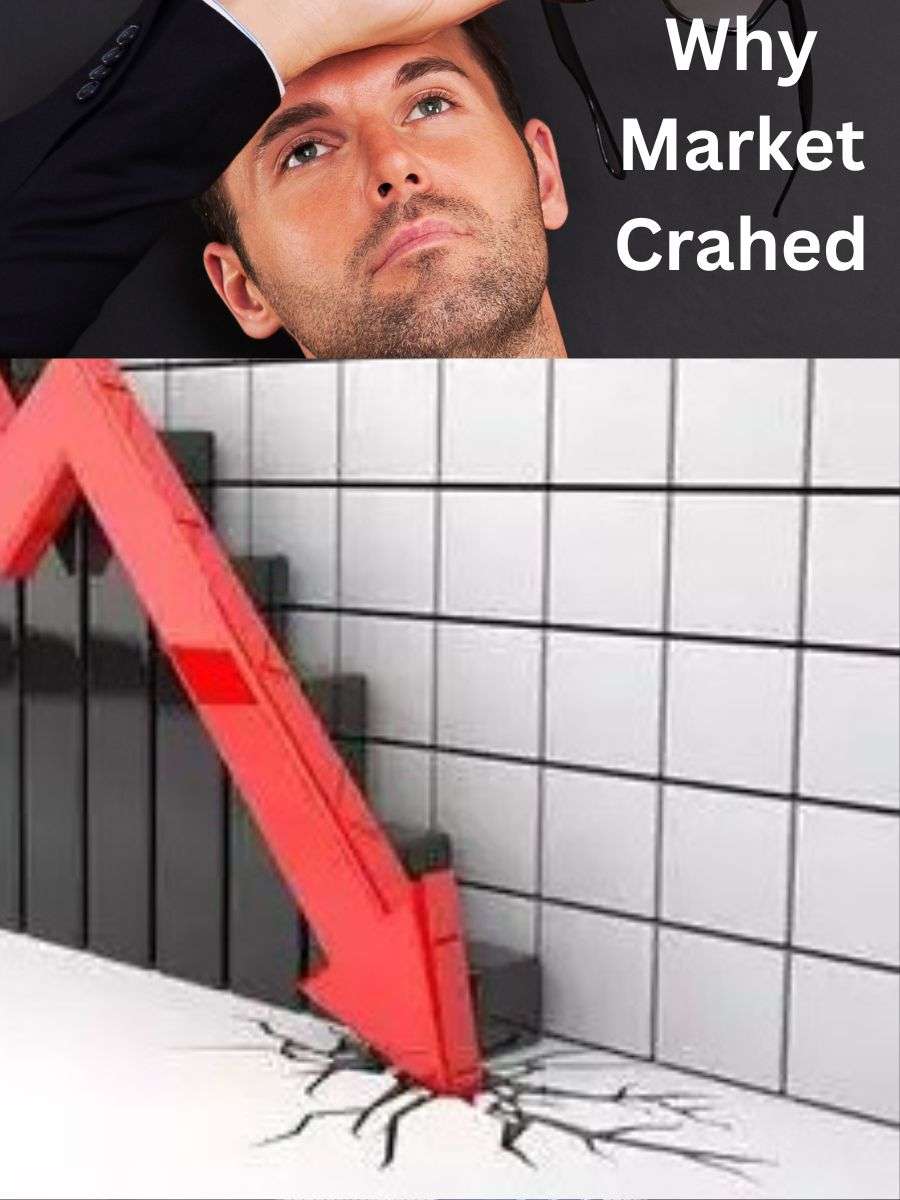Indian stock indices, Sensex and Nifty 50, witnessed a massive drop on Monday, both falling over 1%, as global uncertainties weighed on investor sentiment. Sensex and Nifty 50 fall comes after a period of caution, with profit-booking being a key theme in recent sessions. Below are the main reasons for the market drop:

Sensex and Nifty 50 fall: Rising geopolitical tensions in the Middle East
The recent escalation in the Middle East conflict, particularly Israel’s increasing attacks on Iran-backed forces, has created a volatile environment. There are fears that the conflict could escalate further and potentially involve the US as well, which has made global investors nervous. As a result, many are moving out of risky assets like equities and moving towards safe investments like gold.
Sensex and Nifty 50 fall: Concerns over high valuations
Despite India’s strong economic growth and robust retail inflows, market experts are concerned about high valuations. The Nifty 50’s price-to-earnings (PE) ratio is currently 25.8, well above its forward PE of 21.6. Investors are starting to book profits at these elevated levels, especially in the broader market where mid-cap and small-cap indices are trading at a premium to historical averages.
Sensex and Nifty 50 fall: Impact of China’s stimulus
China’s recent economic stimulus measures have boosted its stock market, with the Hang Seng index rising 18% in September alone. This has driven foreign portfolio investors (FPIs) away from Indian stocks as they chase better opportunities in China’s cheaper, more attractive valuations. Despite India’s long-term growth story, short-term FPI outflows may continue as foreign investors re-align their portfolios in favour of Chinese equities.
Japan’s benchmark Nikkei share average fell more than 4%
The 7% drop in Japan’s Nikkei 225 index is a stark reminder of how interconnected global financial markets have become. As fears of a U.S. recession grow stronger, Japan and other leading economies are beginning to feel the ripple effects. The strengthening yen, along with uncertain central bank policies, only adds to the complexity of the current market conditions. Investors and policymakers alike are preparing for more volatility as they navigate these challenging and uncertain times.
Chinese stock market rebounds after biggest surge since 2008
Chinese stocks have surged for a ninth straight day, boosted by government stimulus measures.
The CSI 300 index saw its biggest jump since 2008, rising 8.5%. The rally comes after policy changes, including easing rules for homebuyers and lower mortgage rates, boosted investor confidence in one of the world’s most battered markets.
Chinese stocks mounted one of their most remarkable turnarounds in history, rising for a ninth straight day, as government stimulus pulled investors back into one of the world’s most battered markets.
The CSI 300 index jumped 8.5% on Monday, its biggest surge since 2008, as traders rushed to buy shares in the last session before a week-long holiday. The index, which had lost more than 45% of its value from its 2021 high by mid-September, has since risen more than 20% to enter a technical bull market. Its rally last week was its largest in 16 years.
Conclusion
The current correction in the Indian stock market is influenced by a combination of geopolitical risks, profit booking due to high valuations, foreign investor movement towards China, and technical market factors. With the second quarter earnings season approaching, investors remain cautious and are waiting for more clarity before making fresh investments. The future direction of the market will likely depend on both global growth and corporate earnings performance in the coming weeks.
ZERODHA 1) : https://zerodha.com/open-account?c=EJ4366
Angelone 2) : https://tinyurl.com/2gloc3g6 or
Upstox3): https://link.upstox.com/9w4tNo1rK8au7VK47









